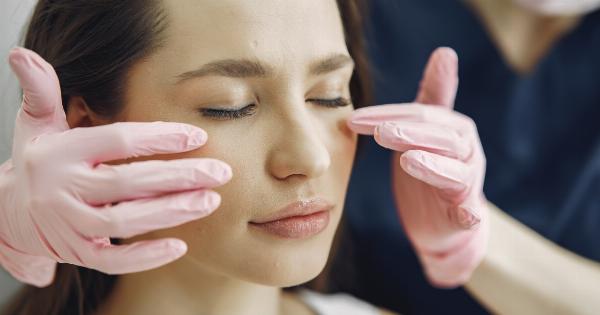Skin metabolism is the process where skin cells generate energy to maintain healthy skin. This process slows down with age, leading to dull, lifeless skin.
Certain lifestyle changes and skincare practices can boost skin metabolism, resulting in glowing and healthy skin.
1. Exfoliation
Exfoliating removes dead skin cells from the surface of the skin, stimulating cell renewal and metabolism. Choose a gentle scrub that suits your skin type and use it once or twice a week.
Be careful not to over-exfoliate as it can damage the skin and hinder the metabolic process.
2. Hydration
Hydrated skin is essential for maintaining healthy skin metabolism. Dry skin cells can’t perform their functions efficiently, leading to slower skin metabolism. Drink plenty of water and use hydrating skincare products.
Look for ingredients like hyaluronic acid, glycerin, and aloe vera that keep the skin moisturized and supple.
3. Sleep
A good night’s sleep is essential for skin metabolism. During sleep, the body repairs and regenerates cells, including skin cells. Lack of sleep can lead to dull, unhealthy skin.
Aim for 7-9 hours of sleep every night, and try to stick to a regular sleep schedule.
4. Exercise
Regular exercise boosts blood circulation, providing the skin cells with oxygen and nutrients for healthy metabolism. Exercise also helps reduce stress, which can negatively impact skin health.
Try to incorporate at least 30 minutes of exercise into your daily routine, whether it’s yoga, running, or strength training.
5. Nutrition
A balanced, nutrient-rich diet is essential for healthy skin metabolism. Eat a variety of fruits, vegetables, whole grains, and lean protein to provide the body with the nutrients it needs.
Certain vitamins and minerals, like vitamins A, C, and E, and zinc, are particularly beneficial for skin health.
6. Sun Protection
The sun’s UV rays can damage skin cells and hinder metabolic processes. Always wear sunscreen with at least SPF 30 when going outside, even on cloudy days.
Wear protective clothing like hats and sunglasses, and avoid prolonged sun exposure during peak hours (10 am-4 pm).
7. Massage
A facial massage can help stimulate blood flow and promote skin metabolism. Use gentle, circular motions to massage your face and neck for a few minutes every day. You can use your fingers or a facial roller for added benefits.
8. Skincare Products
Choose skincare products that contain ingredients that boost skin metabolism. Look for ingredients like niacinamide, caffeine, and peptides that improve circulation and cell turnover.
Use products that are suitable for your skin type and follow a consistent skincare routine.
9. Stress Management
Chronic stress can negatively impact skin metabolism and lead to various skin issues like acne, eczema, and psoriasis. Practice stress-relieving activities like meditation, yoga, or deep breathing exercises.
Find time for hobbies and activities that bring you joy and help you relax.
10. Avoid Smoking and Alcohol
Smoking and excessive alcohol consumption can damage skin cells and negatively impact skin metabolism. These habits can lead to premature aging, wrinkles, and other skin issues.
Quit smoking, and limit alcohol consumption to improve your overall health and skin.
Conclusion
Boosting skin metabolism requires a combination of lifestyle changes and skincare practices. Incorporating these tips into your daily routine can help improve skin health and achieve a glowing complexion.
Remember to be patient and consistent, as it takes time to see noticeable results.































